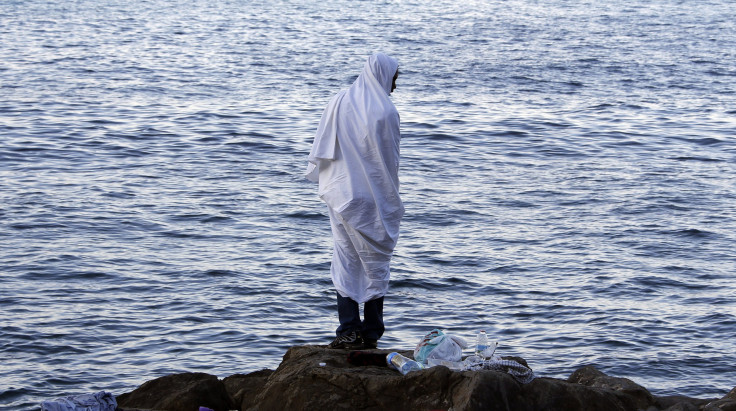Europe Launches Naval Operation Against Mediterranean Smugglers Taking Migrants From North Africa

The European Union launched Monday a yearlong naval operation to disrupt the trafficking and smuggling networks that are bringing migrants across the Mediterranean Sea from North Africa. The initiative, which will cost around 12 million euros ($13.5 million), will deploy the navies of EU nations to catch the smugglers who operate the boats and seize the vessels.
The goal is to lessen the number of migrant deaths in sinkings, but also reduce the heavy burden experienced by Europe’s Mediterranean countries once the migrants arrive on their shores.
The "mission is to identify, capture and dispose of vessels and enabling assets used or suspected of being used by migrant smugglers or traffickers," said a statement by the European Council, the assembly of heads of state and government that sets high-level EU policy. "The council will assess when to move beyond this first step, taking into account the U.N. mandate and the consent of the coastal states concerned, and subsequent phases will be conducted accordingly.”
According to the statement, "the first phase focuses on surveillance and assessment of human smuggling and trafficking networks in the Southern Central Mediterranean." The council does not explain when the second phase will begin, only saying that "it is planned that the second stage of the operation provides for the search and, if necessary, seizure of suspicious vessels." There is also a third phase, which would allow "the disposal of vessels and related assets, preferably before use, and to apprehend traffickers and smugglers."
The goal of stopping the boats even making it to sea has been a key part of the negotiations that led to the operation's launch. Countries such as Italy, Greece, Spain and Malta, all concerned about the costs of accepting huge numbers of migrants, are keen to stop the smuggling from the source; once people seeking asylum land in European Union territory or are rescued and then brought into an EU port, they can claim asylum.
According to the U.N. High Commissioner for Refugees, Italy has seen as many as 47,000 migrants arrive by boat in the first five months of this year, a 12 percent increase over the same period in 2014. Italy is expecting around 200,000 people to come to its shores by the end of the year, a 30,000-person increase from 2014. Most trips are made in what is known as “boating season,” from spring to late fall.
But critics say a military strategy to stop migrants arriving in Europe is unlikely to work.
“I’m not going to pass judgment on whether it’s a good or bad idea, but what is definite is that this is not the solution,” Martin Xuereb, a former Maltese general who is now operations director at Migrant Offshore Aid Station, told International Business Times in May. “It’s not even a Band-Aid because a Band-Aid normally helps something.”
Federica Mogherini, the EU’s high representative for foreign affairs and security policy, said the EU “has never taken the issue of migration as seriously as we are doing now.”
She added: “With this operation, we are targeting the business model of those who benefit from the misery of migrants. But it's only a part of a broader strategy, including the cooperation with our partners in Africa, particularly in the Sahel region, and the work with the International Organization for Migration and the UNHCR. As EU, we are determined to contribute to save lives, dismantle the networks of the smugglers of human beings and address the root causes of migration."
Underscoring the front-line role Italy plays in the operation, its headquarters is in Rome and its commander and deputy are both rear admirals with the Italian navy, Enrico Credendino and Andrea Gueglio.
In early June, more than 6,000 migrants were saved by ships from the Swedish, Spanish, British and Italian navies in just one weekend. In the first four months of this year alone, more than 1,800 people have died at sea, a 20-fold increase from the same period last year. 2015 is on course to top the previous record for the deadliest year for migrants in the Mediterranean, which was 3,500 deaths in 2014.
© Copyright IBTimes 2024. All rights reserved.






















